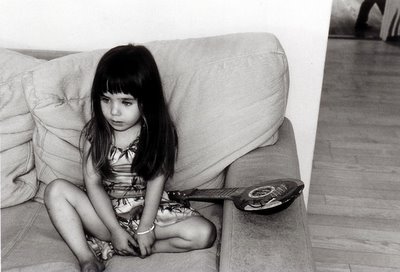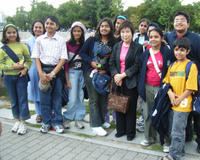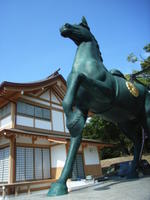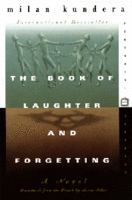To forget myself, without losing myself
I can no longer name my desires. I know that my mind and body pulse twist and pulse with want and hunger – but I cannot imagine the filling dish to dine on.
To forget myself, without losing myself, I dress up in pretty girl clothes and climb into the city crowds. Now that I have lived in Japan and learned to move and breathe in dense hoards, I wonder if the cities in the states will forever disappoint me. I cannot lose myself sufficiently with all that empty space to breathe in.
My usual table at Absinthe is occupied by an optimistic couple, conversing with their hands and demonstrating positive body language. I hate them. I shoot them an unnoticed look of death and then turn my glare to the waitress. OK, so I’m two hours later than usual, but I always come on Thursdays. She should have kept my table clear.
I choose another seat and toss my shopping bags down with a fat thump. The waitress makes amends by bringing me a Hemmingway without me asking for it, pours the green, lights the sugar and tips the champagne. She leaves me with my usual and my new view. My back is to the wall and I can see the whole café. Every other Thursday has found me at the table by the window, pressed close to the glass, hidden by the large potted plant. This spot has a totally new jive.
The waitress asks me what it is I am always writing. I blush and stammer an evasive answer. I could have been smooth. I could have been cool. I could have purred:
stories, articles, porn, novels, whatever…All my empire for two minutes ago.
I watch the gaijin men flock here with their sleek Japanese girlfriends. None of these LHAs (Large Hulking Americans) belong to me. I can’t help but wonder if my pen and journal will always by my loyal café companions.
The boy from last Thursday sits at the bar next to the trendy Euro-trash. With one self-satisfied glance, I can work them both up. Yet, people sit at the bar if they want to talk and be social. I never sit at the bar. I sit at a table – often hidden by a large potted plant. I keep my focus on the lined pages. That is much safer these days.
I drink the pernod quickly.
An American, overweight, of course, takes the table to my right. He orders a beer and starts to smoke. I roll my eyes and retreat back into myself. Then he takes out a notebook filled with carefully inked pages and I pause and smile. To each their own, dear comrade.
If I press lips to the rim of the absinthe cocktail just after conception, I can still feel the lingering heat of the flame. Lovely.
The new waiter’s name is Kazuo. He’s cute and young. Too young. He uses his left hand to shake mine and waits two moments too long before pouring the champagne over the flame.
Anata wa atarashi desu ka?
Hai. Three days. Kazuo desu. Doozo yoroshiko.
Kelsye desu. Nice to meet you, too.The American enters our chat. He tells me about the plot of his television pilot. It’s good. Or, maybe I’m drunk. It’s hard to identify the greater truth.
Three men take the table on my left. They talk marketing plans in English. They can’t decide where to place their product ads. I begin to channel my father and can’t help jumping into the conversation.
“Please excuse my unsolicited, absinthe drenched comments, but I can’t help but offer this: Kansai Scene is respected and well-read and so will your ad be - if it isn’t lost in the chaos of all the other advertisements. The Japanzine isn’t even second-rate crap, it’s third rate crap. It’s only redeeming quality is its English advertisements read faithfully by those that can’t stand the crowd in Kansai Scene. Therefore your ad there is as good as gold. As for the Foreign Buyer’s Club catalogue, while the readership is small, they are fiercely loyal as they are the people who refuse to let go of their home countries and cling like urchins to English-based companies. Your ad placed there is not only as good as gold; it’s like God’s divine word.”
The three man look at me with unblinking eyes. The man closest to me reaches out his hand and drags my table across the floor until it is flush with theirs. “I think we found our new marketing director. What are you anyway, like 20?”
I spend the next hour and a half talking target audiences, product markets and ad campaigns. I can play this game very well. It’s in my blood. I make my exit in time to catch the trains home, laden with stiff white business cards. Yes, yes, I will check out your sites.
How strange. One little variance in routine and two months of not talking to strangers is broken without any adieu.
Backstage with the Rock Star

One of the parents at Kiomye's school snapped this picture of my rockin' babe. I love this image. She looks like she's backstage at her world ukulele tour. Hard core! Ukulele forever!
(Miss Dauphine has also made a recent appearance on Japanese television - shown sharing her advanced cultural undertanding of Halloween customs with the locals.)
An artist I admire
The text on this is especially wonderful.
Daughter Days
 Dining with the Divine Miss Dauphine:
Dining with the Divine Miss Dauphine: Kiomye and I claimed this weekend for ourselves. Last night we wandered through the night with rain boots and slick jackets, jumping in puddles and shopping for bubble bath. Today we took the trains to Okamoto to dine in the florist's cafe and doodle sunshines in our notebooks. The Divine Miss Dauphine is exceptionally charming company.
 Manga Doll:
Manga Doll: I skewed the contrast and saturation on this shot to emphasis Kio's best feature - those crazy big eyes. This is my impression of Kiomye as a manga doll. (Manga - Japanese comics. Girls are usually drawn with grotesquely large eyes).
To my silent reader...

静かにしないでください。
メッセージを私に送ってください。
Trip to Hiroshima






This weekend I helped chaperone a trip to Hiroshima with some students that are visiting our school from India. Here's a few of the pictures I took. I'll write the details later.
Always outdone

Kiomye's been going with the rockstar look lately. I think it suits her well.
Snap: D2 Coffee and Jazz
My secret jazz bar hole in the wall is filled with women tonight. The joint is tiny - as small as my bathroom. There is only enough room for three narrow stools at the counter and one table with three chairs pushed together like a bench. Bill Evans plays on the record player. Bill Evans. Records.
There are four of us tonight: me, the bartender, and two other women who sit on the tall narrow stools. One cradles a sleeping babe and sways to the gentle piano.
I sit at the table and take out my paper and ink. The other women know each other. They chat softly while I scribble. The baby awakes.
Ohiyo, the bartender whispers.
Good morning. The nighttime darkness closes in outside, but we are exempt in this warm cavern.
The woman with the child in her arms keeps the babe enthralled with a folded square of bubble wrap. I want to tell her that my child loved that stuff. The sentiment forms in my brain in rough Japanese, yet my throat fails me. The autumn damp has stolen my voice, despite my certainly close reasoning in forming the difficult words.
The woman on the stool hands the baby to the bartender, pays her bill, and leaves with a cheerful
bye-bye. I am surprised. The baby is on duty tonight. I imagine a childhood spotted with memories of a dim room constantly full of tumbling jazz, soft female voices and warm gentle hands.
Haunted
I dreamed last night that I took you to my café. Everything disappointed you - from the décor, to the patrons to the depth of your drink. The bartender pursued me mercilessly, earnest and sweet. His gentleness repulsed you and you took me away from there.
You meant to take me to your restaurant – leading me through winding streets. I tried to tell you that those roads led nowhere, but you ignored me and kept walking at a fast clip. I had to hustle to keep up with you.
When we finally reached the place, it looked deserted. The wooden tables were covered with dust and the windows were coated with grime. The room was bathed in grey. I tried to protest, to describe what was before your very eyes, but you shot me a look of utter contempt. You were chastising me for not believing in you. You picked up a dry glass from one of the tables. As soon as the rim touched your lips, the glass became full of sparkling water and I heard the chink of ice. You set the glass down on the table and color and cleanliness spread out like a puddle around you.
In a flash, the restaurant was full of life and light. Every other table was taken – by families or couples. Waitress in folded white aprons slid around the room in a frenzied rush. What I was incapable of seeing before had now become fully visible.
I feel like a child playing at being a woman.
Small Joys
Last night I spoke at our weekly staff meeting. This may not sound like a big deal - but it's huge. I have never seen a foreigner speak at one of our meetings, and further more, I have never heard any of the (two other) women speak on an issue unless they were directly asked. The top candidate for the new science teacher position is a very young, pretty female. We were going to vote on her acceptance onto our staff. Concerns were raised about how she would be able to handle working at our all-boys school. (I cannot go into detail as it's all closed door blah-de-blah) Being the only other young woman on staff - I felt I had to speak. It was terrifying to do so, but I could not stay quiet while listening to the things said (most via translation). So, I finally asked another English teacher to translate my words into Japanese and then said my piece.
As I have never spoken before, I had no idea what the reaction would be. That circle of men grew perfectly quiet and still and started at me with bug eyes. They listened to every word I said. They nodded their heads. The vote went the way I wished it would. My point was simple; demonstrate respect and the students will follow your behavior.
Afterwards, one of the other female teachers took me aside in the hall to tell me how glad she was that I said what I did. Even one of the male teachers cornered me in the office. His English isn't very good and he rarely speaks to me, but he struggled out a sentence to tell me he was happy that I spoke. I felt very good.
I really hope this new teacher doesn't crap out in the first term.
---
This morning I went to teach my class of adult women. My students were happy and easily engaged and the class went well. Upon leaving, I noticed that the building which has been under construction for the past half year was finished and was being occupied by a new art store. HORRAY! I have trampled all over Kansai looking for decent art supplies. I have finally found some good places, but they are far from my house and it's difficult to bring things back on the train. This new store is excellent and is within walking (or cheap taxi) distance from my house. I immediately went in and bought a long metal ruler I haven't been able to find anywhere else. Look for more new graphics to come on this dear blog...
Then, after that happy surprise, I returned home to find yet another. My beloved book fairy (can a man be a fairy? Oh, nevermind) had sent me an unexpected package. How I love the crinkle of brown packing.
This evening I'm off to Osaka for my weekly solitude and sanity session. The pretty girl at Absinthe doesn't even bring me a menu anymore.
I love days like this.
Recently read and adored

Milan Kundera's Book of Laughter and Forgetting. I keep tearing pages out of his novels that I want either to share with someone who weighs on my mind, or else to stick somewhere that I will stumble across much later so that I have the joy of reading it again. (As of such, one of my readers will recognize the next few lines. Forgive me, as I will recycle my thoughts for my blog.)
Kundera spoke of woman as an object - relating her to a tool such as a hammer while maintaining man as man and master. I bristled at this initial comparison. The rationalization that followed, however, rang completely true.
Kundera wrote that men have the power to change women into objects, tools as utilitarian as hammers, to perceive them as instruments and nothing more. A woman then has an equal power to return this appraisal, to gaze back as an object with all the knowledge of self and self-ability. This may strip the man of his power.
I think this is where many modern feminists made their stand. They rooted here and rebelled against the hands that tried to wield them.
Kundera goes one step farther, and I walk with him. A good worker (man) must be able to accept this transformation from object to living being, bear the power of the tool, then, with firm hand, and turn her back into an object.
"A tool knows exactly how it's meant to be handled," wrote Kundera. "The user of the tool can only have an approximate idea."
There was a time when I accepted incompetent masters as I believed that a lacking master was better than no master. Let me at least flatten bread if I cannot build castles. Maybe I still believe this, but I am no longer grateful to be breaking my body against soft souls.
This rationalization is a creatively disguised weakness. To seek a master declares passivity. Passivity repulses me. To say that I have not reached my full potential (in self, in love, in creativity, in experience) because I have not found a master capable of wielding my powers is a convenient cop-out.
We must also not forget that the master does not serve the tool. The tool is not glorified in the final work. The man who directed and manipulated the tool is exalted.
Who will be exalted?
Still, I would be thrilled to lose myself in a consuming work, even if the castle is not of my own design.

While Kundera's book took m a while to absorb in bits and pieces in scattered reading sessions, I swallowed up Haruki Murakami's
"Norwegian Wood" in just two sittings. This author has been recommended to me countless times. I finally read his book
"Hard Boiled Wonderland at the End of the World" and HATED it. I could find no solid ground to stand on and no reason to wander through his strange universe. But, as so often this author's name was presented to me, I tried again with this, his most popular novel. Amazing. I loved it. I want to read it five more times, wait until I can forget most, then read it five more times. There were so many creepy instances when either I or my actions were perfectly described on the pages (see an example in the previous post). The characters certainly did not mirror me in entirety, but those slick clear passages that did ring true were almost embarrassingly revealing. I have felt this once before, with a Kundera book no less
("The Unbearable Lightness of Being"). This morning I finished one more book - "Botchan" by Natsumi Soseki. Soseki is one of my favorite writers - also very famous in Japan. Botchan was enjoyable, but not as good as the others I have read by him. For those interested in Soseki, I still recommend
"And Then."
Crowded Loneliness
My pleasures in this foreign land have been many, chased and threatened only by my great fears. Now I am left with the pain and the delay of mourning. This does not bring me down. Or – it does, but in a way that sparkles and refreshes. I welcome the break from exaltation.
I find myself unable to string my words together in a sensical manner. I start speaking, and then stop. Start again, and then trail off. Finally, I can only crease my brow and say, “That’s not it.”
Particular pleasures resonate as of late. I read a book with a protagonist named after a man I desire. He is lonely, full of need. His unrest keeps him up at night, so he pours himself a whiskey, puts his Miles Davis album on repeat and watches the city flicker and shine out his window. The passage chills me to the bone – an almost perfect description of my night one day before. Only, I poured wine instead of whiskey and my copy of
"Kind of Blue" spins on a CD.
Later, at work, I sit with one of my students in the hallway. He struggles through his English interview. I ask the required questions – then ask one more. “Why did you sit alone during the break today?”
My student turns red and looks at his feet. He looks at back at me, forehead wrinkled and mouth opened in a comic “O”. He cannot form the sentence in English. He says only a name –
Shimanaka.
I know that boy. He is bright and popular. He torments the slower students mercilessly.
“Hmm,” I say, maintaining my serious sensei demeanor. “Well, Shimanaka is an ass.”
“What?” my student says, ashamed once more that he didn’t understand the new vocabulary.
“Shimanaka… is… an…
ass.” I rise off the bench and point at the roundest part of my anatomy for emphasis.
“Oh,” my student says. He still looks confused. Then his eyes circle wide as grapefruits and he lets out a loud snort.
I laugh back and he laughs again. Suddenly, we are lost in laughter, our guffaws echoing through the empty hallway so loudly that we draw the uptight history teacher out of his classroom. He is red-faced and ready to yell. He stops short when he sees me with the student. He slams the door to his classroom on his way back in – smacking the frame. My student and I look at each other. We see the shock in each other’s faces. Our laughter begins again. Unruly.
The history teacher won’t be able to look me in the eyes for a week.
Much later, I stand on the train platform at the bottom of my hill. It’s the afternoon. I am headed deep into Osaka to sit by myself in a café that serves absinthe so I may drink and draw. I am looking for my friend. I almost miss him, but then, just before I step onto the crowded train, I see him. In the office building across the street, the curtains in the fourth floor window twitch and then part. A large German Shepard presses his long face against the plate glass window. My friend. He barks his muted good-byes as my train rumbles away.
So now I am tired. I lay myself in my bed without a novel or a man to accompany me. I fall to sleep with some difficulty and then dream of earthquakes, tidal waves and my father’s old apartment. My father. The time we spend together in my dream is the first time I’ve seen him in months. I wake up missing him and place an overseas call to his cell. He does not answer. I leave a message saying that it was me and that I was thinking of him. He has three daughters with strikingly similar phone voices, but I do not doubt that he will able to identify the “me” in an instant.
If only I could say the same of all the men in my life.


















